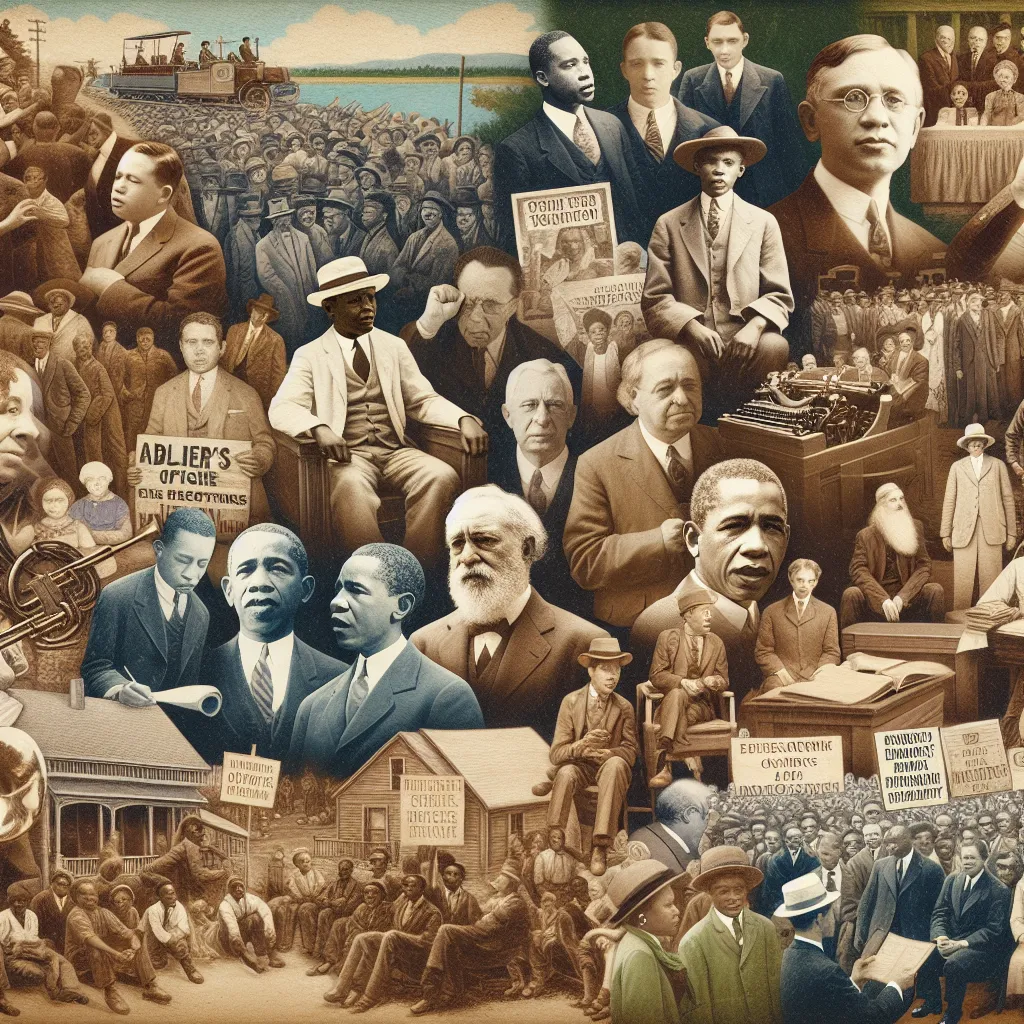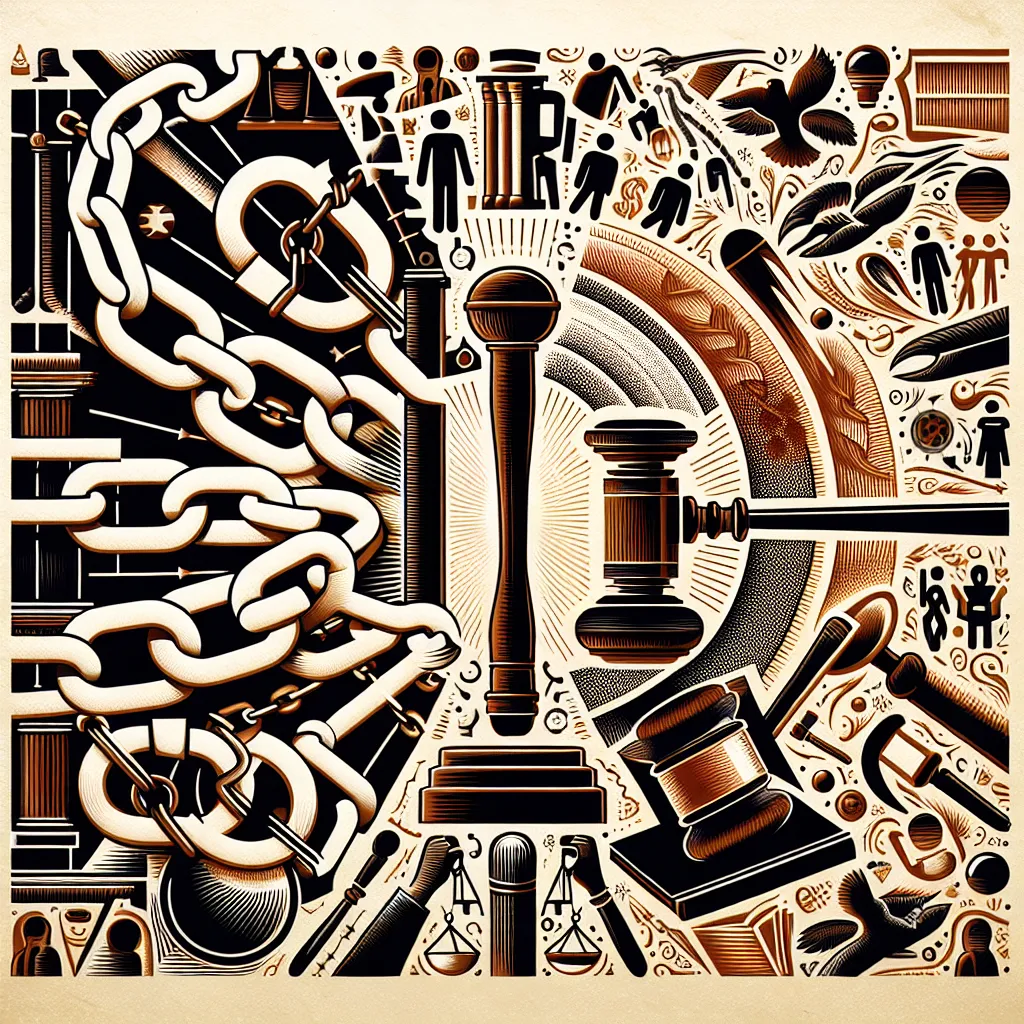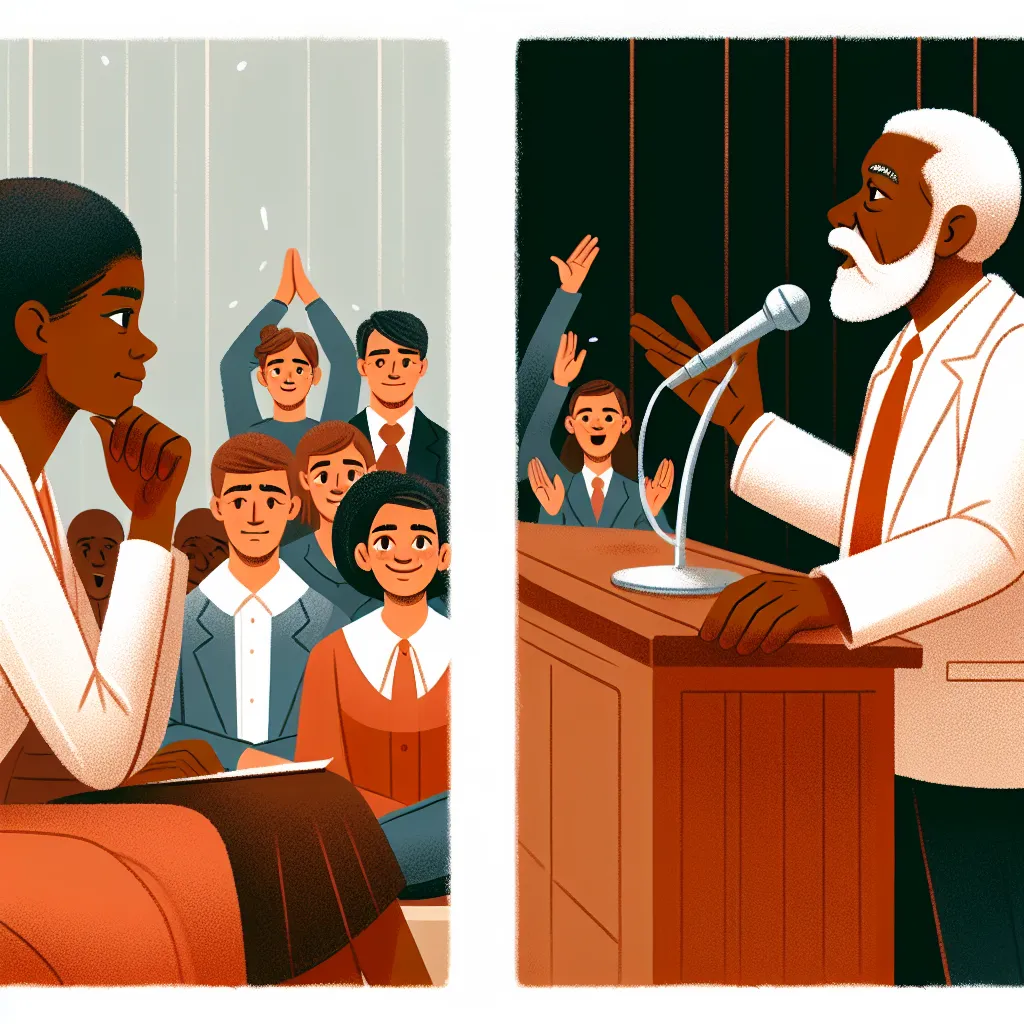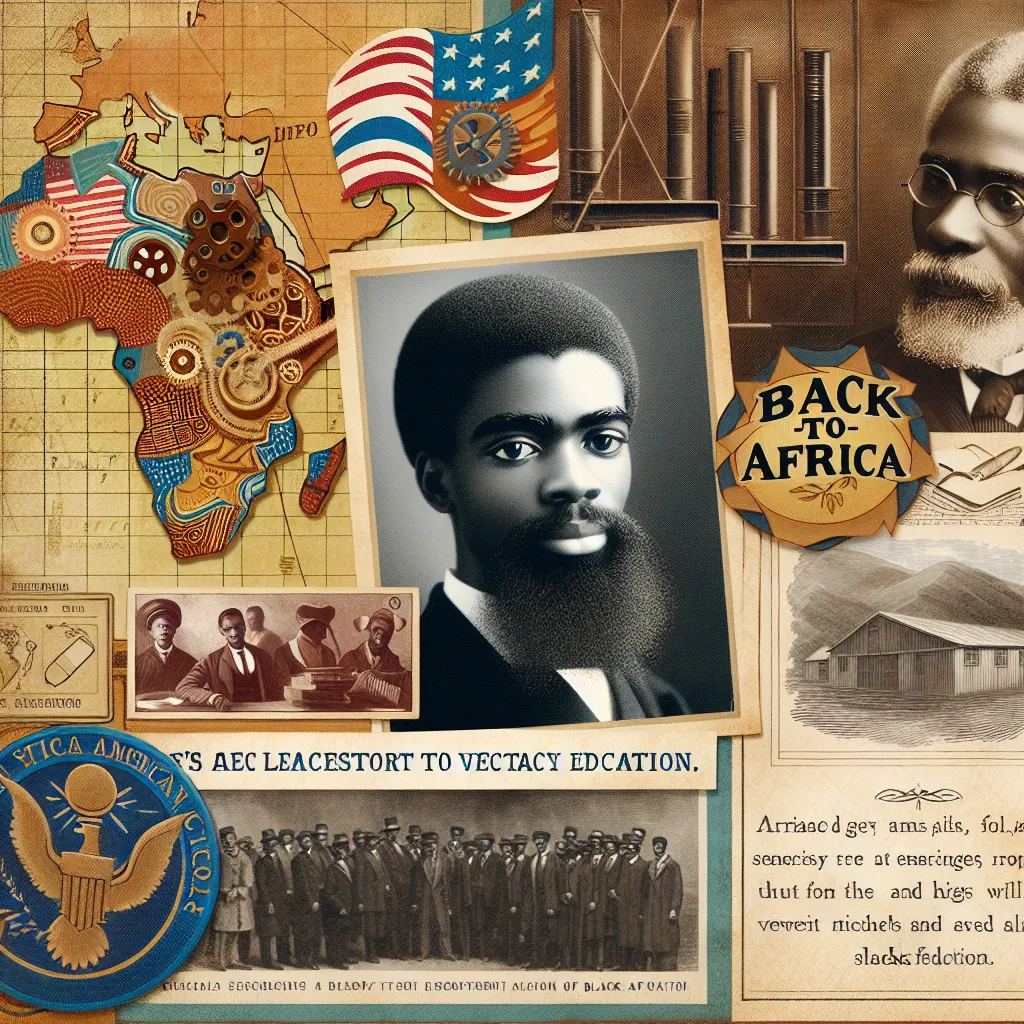Ask AI on The Internet
Question: Compare tone and main idea in the Atlanta Compromise by Booker T Washington and Niagra Movement speech by Du Bois
Certainly! Here’s a comparison of the tone and main idea in Booker T. Washington’s “Atlanta Compromise” speech and W. E. B. Du Bois’ Niagara Movement Speech: ### Tone: **Atlanta Compromise by Booker T. Washington:** - **Conciliatory and Pragmatic:** Washington adopts a conciliatory tone, emphasizing cooperation between Black and White Americans. He suggests that African Americans should focus on vocational training and self-improvement as a means to gain respect and economic stability. Washington’s tone is pragmatic, aiming to reassure White audiences that African Americans pose no threat to social order and are willing to work within the established system. - **Optimistic and Patient:** There is an optimistic undertone in Washington’s speech, promoting the idea that patience and hard work will eventually lead to social and economic progress for African Americans. **Niagara Movement Speech by W. E. B. Du Bois:** - **Assertive and Defiant:** Du Bois’ tone is much more assertive and defiant compared to Washington’s. He strongly advocates for immediate and unequivocal civil rights, rejecting any form of compromise when it comes to equality and justice. - **Passionate and Urgent:** Du Bois emphasizes the urgency of the movement and the dire need for social change. His speech is filled with passionate rhetoric aimed at rallying African Americans to demand their rights and resist subjugation actively. ### Main Idea: **Atlanta Compromise by Booker T. Washington:** - **Economic Self-Help and Gradualism:** Washington’s main idea revolves around the concept of African Americans achieving progress through vocational education and economic self-reliance. He proposes that by proving their economic value, African Americans will gradually earn the respect and acceptance of White Americans. The strategy involves accepting temporary social segregation and disenfranchisement in exchange for opportunities for vocational training and employment. - **Accommodation:** Washington advocates for a philosophy of accommodation. He believes that African Americans should not directly challenge segregation or demand immediate civil rights but should instead work hard, acquire skills, and improve their economic condition to gain a foothold in society. **Niagara Movement Speech by W. E. B. Du Bois:** - **Demand for Immediate Civil Rights:** Du Bois, on the other hand, strongly champions the immediate recognition of civil rights for African Americans. He calls for the end of disenfranchisement, segregation, and discriminatory practices. The Niagara Movement calls for full political, civil, and social rights, including the right to vote, equal treatment under the law, and access to quality education. - **Rejection of Accommodation:** Du Bois explicitly rejects Washington’s philosophy of accommodation. He argues that accepting lower status and gradualism only reinforces systemic racism and subjugation. Du Bois insists on a more confrontational and demanding stance to achieve justice and equality. ### Conclusion: In summary, Booker T. Washington’s “Atlanta Compromise” speech takes a more conciliatory and gradual approach, emphasizing vocational training and economic self-help as a means to improve the status of African Americans. In contrast, W. E. B. Du Bois’ Niagara Movement Speech adopts a more assertive and urgent tone, demanding immediate civil rights and rejecting any form of accommodation to systemic inequality. The fundamental difference lies in their strategies for achieving racial equality: Washington’s gradualism versus Du Bois’ insistence on immediate rights and direct action.
Think your answer is better than the AI's? Post it below.
Other Most Relevant Posts:
 1. **Equality Beyond the Veil with the Niagara Movement**
2. **Freedom Seekers: The Exodus Movement**
3. **The NAACP: Legacy of Advancement for Colored People**
4. **Jim Crow Laws: America's Raci
1. **Equality Beyond the Veil with the Niagara Movement**
2. **Freedom Seekers: The Exodus Movement**
3. **The NAACP: Legacy of Advancement for Colored People**
4. **Jim Crow Laws: America's Raci
 In the first paragraph, Douglass expresses reluctance to disclose the identities of the white boys who helped him learn to read, deeming it as "an almost unpardonable offense." He further adds a perso
In the first paragraph, Douglass expresses reluctance to disclose the identities of the white boys who helped him learn to read, deeming it as "an almost unpardonable offense." He further adds a perso
 68) Uncle Tom's Cabin: The Harsh Realities of Slavery and Anti-Slavery Galvanization
69) Ku Klux Klan: Goals of White Supremacy, Resistance, and Intimidation
70) KKK: Violence, Lynching, and Inti
68) Uncle Tom's Cabin: The Harsh Realities of Slavery and Anti-Slavery Galvanization
69) Ku Klux Klan: Goals of White Supremacy, Resistance, and Intimidation
70) KKK: Violence, Lynching, and Inti
Question Tags
If you want your question answered by an AI, click here.




Post your own comment: